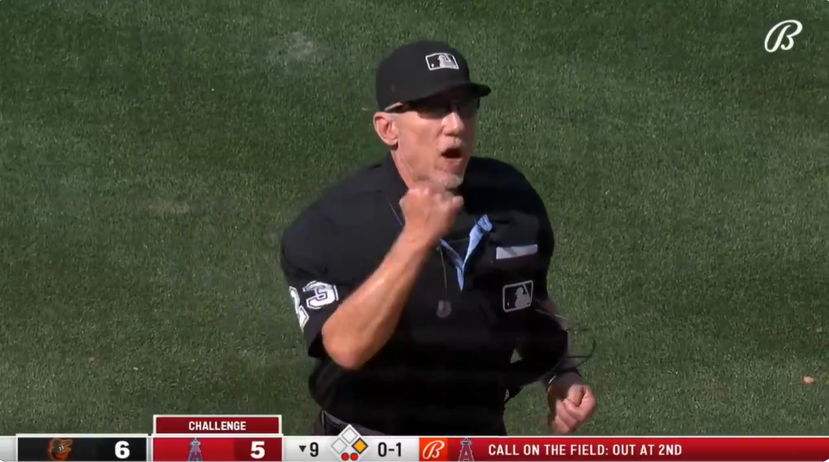John Skipper, the former longtime president at ESPN and current CEO at Meadowlark Media, has never been shy in sharing his thoughts on the future of sports content and broadcasting. Along with a lot of talk around “voids” in sports programming, Skipper has said he foresees a pay-per-view Super Bowl and the alleged role that ESPN plays in shaping college football. To say nothing of all the extensive talked about the changes DAZN was going to bring to the U.S., many of which did not happen.
Skipper recently joined fellow Meadowlark member Dan Le Batard and the former president of the Miami Marlins, David Samson on an episode of the South Beach Sessions podcast. A key part of the conversation started with a discussion about the skyrocketing price of college football salaries and how that relates to TV broadcasting rights.
#SouthBeachSessions Two powerful sports executives, John Skipper and @DavidPSamson, talk about the insides of business with an expertise and honesty not often heard in this space.
🎙 https://t.co/VUF88fV9dh 🎙 https://t.co/2BPJyMITBN pic.twitter.com/iodp4ZiF4z— Dan Le Batard Show with Stugotz (@LeBatardShow) December 8, 2021
“I think they are worth the money they are being paid,” said Skipper. “It may seem outlandish to some people who are making $53,000 a year and don’t understand why you have to pay a football coach five or six times more than you pay a university president. But, relative success on the football field leads to excitement from your donors, leads to increased admissions, leads to a lot of people showing up in your town for football games. A 12-0 Miami is worth $8 million more than a 7-5 Miami.”
“The reason why football coaches to me are making this amount of money is universities are realizing that they are getting fewer and fewer students to pay full freight tuition,” said Samson. “They are running at a deficit operationally in a way they never have before. What they are finding is people like you running broadcast empires who are willing to pay rights fees in numbers that are probably irrational, but based on the need for live content. Sports live content in the college area drives so much revenue that if you can get a program that is attractive into a conference that is attractive, it’s going to do way more for your bottom line than anything you can do in any other department. University presidents think coaches are the key master to that money and that’s why they do it.”
Skipper then noted that the first TV deal he worked on was with the Big Ten. The conference pushed back for a large increase in rights fees, which caused ESPN to balk. That caused then-Big Ten commissioner Jim Delany to begin the process of what would become the Big Ten Network, something that Skipper seems to regret letting happen.
“The first conference deal I worked on was the Big Ten, which came up in 2005,” said Skipper. “We were competing with FOX. We did a 10-year, $1 billion deal. That was the first billion-dollar deal in college sports for the rights to most of the Big Ten’s games. They kept some games for the Big Ten Network. We should never have let the Big Ten Network happen at ESPN. Wasn’t good for our business that those games leaked out of the system, but Jim Delany had the smart idea to launch a network with FOX and that also was good business, even though it had a rough start.”
Given how motivated Delany was at the time, it’s hard to think ESPN could have prevented the move, short of paying a king’s ransom. And if Skipper thought that rights deal was big, he might blush at the next one the Big Ten is likely to negotiate.
The Big Ten Network led to the Pac-12 Network which led to the SEC Network, ACC Network, and so on. And now, a lot of college sports content has been piecemealed to specific services and broadcasters where audiences have to pay more in order to get access to all of it, assuming those specific networks have deals with your specific cable provider. Skipper sees an eventual shift back to the traditional cable model when viewers get tired of scrambling to find the games they want to watch.
“You are going to go through a very difficult period of time in the next 5-10 years in which people are not going to be able to find the game they want to watch nearly as easily as they did in the 2000s and 2010s,” said Skipper. “I will hazard a guess that people will be nostalgic about paid television before too long because it was a great system and very great value because everything you wanted to watch, you paid Spectrum or Comcast and every college football or baseball game was on.
“You can find them all with a single remote and single service. You are going to enter into a bewildering time where people do not know where their game is because five of them will be on NBC broadcast and three of them will be on ESPN+ and two of them will be on Paramount+ and one of them will be on the ACC Network. Every week, you are going to have to figure out where the hell are they playing this week…It’s going to be more expensive, more difficult to find.”
Perhaps. It’s also possible that these growing pains will be accounted for as the industry adjusts for the new era of streaming services, content providers, and rights holders. We’re still seeing how the impending death of the regional sports networks, the rise of Amazon, the introduction of new players, and the expansion of streaming services are impacting the media rights world.
[South Beach Sessions, transcription via Barrett Sports Media]






